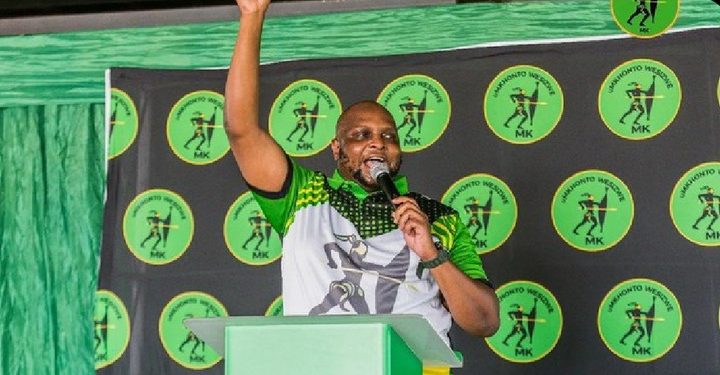Tensions between Economic Freedom Fighters (EFF) leader Julius Malema and his former deputy Floyd Shivambu have intensified following Shivambu’s controversial claim that he, not Malema, was the true founder of the EFF.
Speaking at a rally for the uMkhonto weSizwe (MK) Party, Shivambu alleged, “I was the one who came up with the idea of forming the EFF. Julius simply took over what I had already started.” The statement has fueled speculation about the extent of the fallout between the two former allies.
Shivambu, who parted ways with the EFF earlier this year, has since joined forces with the MK Party, a faction associated with former President Jacob Zuma. His departure followed a series of internal disagreements with Malema, including disputes over the EFF’s leadership style and strategic direction.
Although Malema has yet to publicly address Shivambu’s remarks, sources within the EFF have dismissed the claims as an attempt to rewrite history. A senior party member, speaking anonymously, described Shivambu’s statements as “baseless and aimed at discrediting Malema’s leadership.”
Political analysts warn that the escalating feud could have significant consequences for both leaders and their parties. “This conflict risks splitting their shared support base, particularly among young voters drawn to their anti-establishment stance,” noted Professor Mpho Matlala, a political science expert.
The timing of the rift is critical as South Africa approaches the 2024 general elections. The EFF is working to cement its position as a key political force, while the MK Party seeks to establish itself as a viable alternative to the ruling African National Congress (ANC).
As the verbal sparring continues, the public is watching closely to see how this rivalry will shape the political landscape and whether it will influence voter sentiment in the upcoming elections.






















